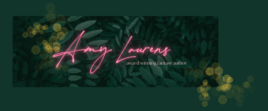Or, if you prefer, grab a copy from your favourite online retailer in print or ebook!
2021 Aurealis Awards winner: Best Fantasy Novella
Bones Of The Sea
The man, whose name is irrelevant, for he shall soon be dead, wandered down the beach where sand whiter than any he’d seen before swashed between a short, head-high cliff to his left, and the frothing waves of the ocean to his right. Salt filled the air, but below that, something else lingered, and he couldn’t quite place his… nose… on what it was.
Of course, the locals were horrified that he was here at all. But he was a Man Of Learning, and was not accustomed to heeding the warnings of people obviously less learned than himself, especially when they spoke tales of a beach that left no trespasser alive.
He’d scoffed. Ridiculous, their legends of a beach where to set one toe on the sand was to seal your own death sentence before the rising of the next full moon.
He was far more interested in analysing the sand, quite literally whiter than any he’d seen before, and thus far resistant to his attempts to decode it. He’d thought a pure variety of quartz before he’d arrived, but upon reaching the beach, pulling into the little deserted cul-de-sac dead end, festooned with warning signs (‘Cursed Beach, Do Not Enter’; ‘Beware The Bones Of The Sea’), he’d switched his engine off, opened the car door to the sound of waves and wind through the saltbush, and he’d seen the sharp drop-off down to the sand and had changed his mind to chalk, or maybe gypsum.
But there’d been no tiny fossils his magnifying glass could detect, and the sand, whatever it was made from, had failed to fizz under the application of a drop of acid from his little glass vial, so that struck gypsum and chalk from the list of options.
Now, after several hours on the beach to no avail as the hot evening sun seared his hands and the light glinting off the ocean—and, of course, the white sand—blinded him, he’d had enough. He’d run out of fresh water, ideas, and patience all, and was presently hiking back around the cove to his car that glinted silver and tantalising at the far end of the beach, a haven of cool air and fresh water.
The salt clung to his skin, filming his lips, the inside of his nose, the back of his throat. Somehow, the ocean smelled sharper here, more concentrated. Briefly, he wondered if that was the source of the townsfolk’s rumours; but a higher salt concentration ought to have meant people floated better, drowned less. No. There must simply be a convergence of factors that meant the currents here were particularly treacherous, and indeed, casting his gaze out to the distance horizon, examining the interplay of wave and off-white foam, the cove did indeed seem to be quite swirly, with a few smooth tracts he thought were probably rips.
As ever, folklore had a logical series of explanations behind it.
His leather sandal caught on something in the sand.
He stumbled.
Ow.
Whatever it was, it had poked through the holes in his footwear to stab at his toes.
Glaring, impatient, our nameless victim kicked away some of the strange, defiant white sand—and inhaled sharply.
Once the initial burst of adrenalin subsided—something a surprise human skull will inevitably inspire, regardless of one’s general composure—it seemed obvious.
Of course. The one thing he hadn’t tested for was bone.
So focused on unlocking the mystery of the sand’s composition was he that his initial reaction was deep, gleeful satisfaction.
Dawning understanding, however, made him lift his feet, hesitantly at first, shaking the white sand—bone—sand, think of it as sand, it’s safer that way—but it’s bone, really it’s bone, it’s all bone, every single grain of it, pure white, sun-bleached bone, spat up from the guts of the ocean the way a predatory owl spits out the bones of its prey, and then his feet were dancing, just like his stomach, as he leapt for the cliff and tried to haul himself up and off the beach because God, oh God, he was standing on bones and only bones, and the skull he’d uncovered had been human, and there, just down the beach, that rock wasn’t a rock, it was another skull, and oh God, how many people had died here?
He realised the sobbing was his, rasps of panic as he scrabbled at the cliff face that should have been easier to climb than it was, his fingers digging at the rock, skin tearing, sandals scraping for purchase…
His back was to the ocean when the freak wave rose, a local tsunami of salt and hunger, and smashed into him.
As it dragged him out to sea, all he felt was cold, so bitter it froze his bones right in his body.
An hour later, as the sun spilled red-orange lifeblood out over the ocean, the ocean spat a skull, bleached-white and grinning, back up onto the beach. A moment later, as the full moon crested over the craggy headland behind, a sternum—most of its ribs still attached—joined the skull, followed a moment later by a single scapula.
And as the moon rose, and the ocean swallowed the sun, a whisper began that sounded like the wind… until you realised there was nothing but saltbush for the wind to disturb, and the whispers sounded strangely like a voice, hungry, crooning, and singing.
Feed me.
Feeed mee.
Feeeeeed meeeeee….
